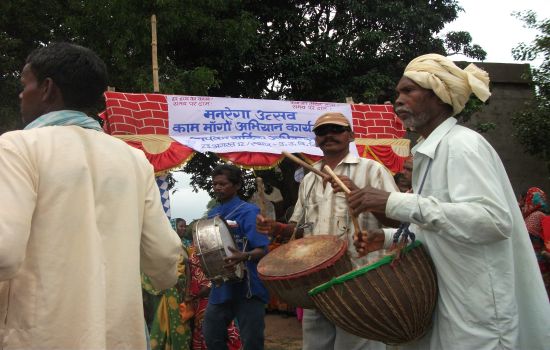
The PACS Programme is an initiative of the UK Government’s, Department for International Development (DFID). It is aimed at reducing the gap in the well being status between the socially excluded groups and the rest of the population in India.
PACS work with the CSOs to help these groups claim their rights and entitlements, by promoting inclusive policies, programmes and institutions at local, district and state levels.
The PACS Programme is in its second phase and the current seven-year programme (£25 million, 2009-16), supports the Civil Society Organizations (CSOs) in promoting inclusive local, district and State policies.
Aims:
PACS aims to unlock the potential of the civil society to address social exclusion, by providing:
- Grants to CSOs, to help them assist the socially excluded people to claim their rights and entitlements.
- Capacity-building support to CSOs, on issues ranging from financial management to policy advocacy.
- Opportunities for networking, alliance-building, communication activities and joint advocacy.
- Knowledge management by tracking the progress of programme implementation, identifying and disseminating the lessons learnt, filling operational knowledge gaps, and providing evidence for policy advocacy.
Key focus areas:
PACS focuses on the non-discriminatory access for socially excluded groups in two key themes:
- Livelihoods (work, land rights, resources and skills).
- Right to basic services (education, health and nutrition).
Geographical areas covered
PACS covers 90 selected districts in seven states: Bihar, Chhattisgarh, Jharkhand, Madhya Pradesh, Odisha, Uttar Pradesh and West Bengal.
NSVK works with the PACS in Jharkhand for MNREGA and FRA. It works in 5 Districts, 21 blocks, 101 Gram Panchayats and 516 villages. It’s based on the Campaign for Right to Land & Livelihood of the Excluded & Marginal Communities.
Outcome:
The purpose of the project is to empower and mainstream the excluded and the marginal communities through effective advocacy and community mobilization to acquire their due entitlement and right to life and livelihood.
- 80 % of the eligible persons received 100 days employment under MNREGA.
- 80% of the people not getting employment, received full unemployment compensation under MNREGA.
- 150 villages will have community assets/components created through MNREGA work.
- 90% of the ST forest dwelling HH and 70% of the Other Traditional Forest Dwellers, would have received homestead and agriculture land deeds under the FRA.
- 90% claims for common property and right to forest produce have been processed under the FRA.
